RURAL PRODUCTS
(Recommended by IND Solutions)
For Ordering Product and/or Donating the Product to NGOs, individuals, villages, towns etc. of your choice, please send us an e-mail on: indsolutions@hotmail.com
(You can contact the producers/distributors directly too. However, if you route your queries through us, we can try to negotiate a better price for you.)
RURAL TECHNOLOGIES
 |
- Product Name: ARTI BIOGAS PLANT
- Producers/Distributors: Samuchit Enviro-Tech Pvt. Ltd
- Description: ARTI has developed a compact biogas plant which uses waste food rather than dung/manure as feedstock, to supply biogas for cooking. The design and development of this simple, yet powerful technology for the people, has won ARTI the Ashden Award for Sustainable Energy 2006 in the Food Security category. Dr. Anand Karve (President of ARTI) developed a compact biogas system that uses starchy or sugary feedstock (waste grain flour, spoilt grain, overripe or misshapen fruit, nonedible seeds, fruits and rhizomes, green leaves, kitchen watse, leftover food, etc). Just 2 kg of such feedstock produces about 500 g of methane, and the reaction is completed with 24 hours. The conventional biogas systems, using cattle dung, sewerage, etc. use about 40 kg feedstock to produce the same quantity of methane, and require about 40 days to complete the reaction. Thus, from the point of view of conversion of feedstock into methane, the system developed by Dr. Anand Karve is 20 times as efficient as the conventional system, and from the point of view of reaction time, it is 40 times as efficient. Thus, overall, the new system is 800 times as efficient as the conventional biogas system.
|
 |
- Product Name: BIOGAS PLANT
- Producers/Distributors: BIOTECH
-
Description: In 1994, driven by a desire to see an end to the dumping of waste in public places, Saji Das set up BIOTECH to focus on ways of managing organic waste to produce alternative sources of energy. Four years later BIOTECH launched its innovative biogas programme which uses unwanted food waste and other organic waste to produce gas for cooking and, in some cases, to produce electricity. |
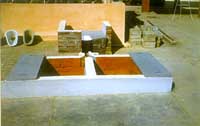 |
- Product Name: LOW COST LATRINE
- Producers/Distributors: Central Building Research Institute, Hyderabad, India
- Description:Suitable in the areas where sewerage system or septic tank is not feasible due to financial constraints and/or shortage of water
|
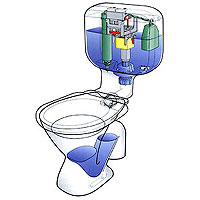 |
WATER CONSERVATION WITH A DUAL FLUSH SYSTEM TOILET DEVELOPED BY AN AUSTRALIAN COMPANY
Caroma Dual-Flush Toilet is a 6.0/3.0 litre (1.6/0.8 gallon) two button dual flush system with an average water usage as low as 3.8 litres (1 gallon). Dual flush capabilities allow various flush combinations to suit specific applications. Caroma's two button dual flush technology works with almost every sewage system in the world without the need for modification. These dual flush valve toilets can significantly contribute to water conservation.
|
|

Nimbkar Agriculture Research Institute (NARI), Maharashtra, India develops Improved Lantern for Rural Areas - 'NOORIE'
- Light Output: Light output measurements on Noorie kerosene and alcohol lanterns were significantly higher than other light sources.
- Cooking tests: Noorie lantern also doubles up as a cooking stove. By removing the top cover and placing a utensil over the chimney, cooking is effected by flue gases. The heat of flue gases is completely wasted in Petromax lanterns. Tests conducted show that 0.4 liters of water in a covered pot is boiled in 25 minutes. Also 100 g of rice and 100 g of dal (lentil soup) can be cooked easily in 25 and 60 minutes respectively.
|
3. Size of Noorie lanterns: The Noorie kerosene lantern is 35 cm tall and weighs 1.6 kg while Noorie alcohol lantern is 33 cm tall and weighs 1.5 kg. In comparison, the Petromax is 40 cm tall and weighs 2.1 kg. The tank in Noorie lantern holds 700-g kerosene, which lasts for three to four days at 4-hours/day use.
4. Overall lighting efficacy: Comparison of overall efficacy of a light bulb and that of kerosene/alcohol mantle light reveals interesting results. The overall power plant-to-light efficacy of a vacuum electric light bulb (100 W) is 3.21 lm/W. This includes power plant efficiency of 30%, power transmission efficiency of 80% and lamp efficacy of 13.4 lm/W. The existing Noorie kerosene and alcohol lanterns have efficacies of 2.03 and 2.82 lm/W respectively. With better thermoluminescent materials, the liquid fuel lamps can have efficacies surpassing those of the electric bulbs. Hence, efficiencies of liquid fuel lighting will be at par or even exceed those of electric lighting.
5. Cost of Noorie lantern: Costing analysis reveals that Noorie kerosene lantern will cost about Rs. 450 in mass production. |
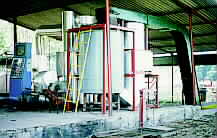 |
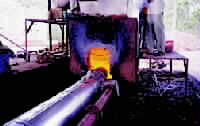 |
|
NARI DEVELOPS BIOMASS GASIFIER
Large amount of agricultural residues like sugarcane leaves, Bajra residues, wheat residues, etc. are burnt in the fields. Besides creating air pollution there is a tremendous loss of energy. NARI has therefore developed a biomass gasifier for loose agricultural residues.
Attributes of NARI gasifier:
- Thermal gasifier of 800 kW capacity
- It is a multifuel gasifier. Can run on sugarcane leaves, Bajra husk, safflower residues, sweet sorghum stalks and bagasse, sugarcane bagasse, etc.
- About 20-24% of the fuel is converted into char, which is a value added item
- Zero waste water system. Hot gas cleaning.
- PLC controlled unit. Only two operators per shift are required.
- The cost of the unit is Rs. 13,00,000/-
|
| |
HORTICULTURE
|
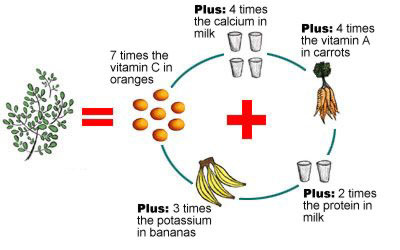
(http://www.treesforlife.org/treesforlife.asp) |
The Miracle of Moringa Leaves
India's ancient tradition of ayurveda says the leaves of the Moringa tree prevent 300 diseases.
Modern science confirms the basic idea.
Scientific research has proven that these humble leaves are in fact a powerhouse of nutritional value.
Unfortunately, even while science sings the praise of Moringa leaves, this vital information has not reached the people who need it most. Trees for Life is responding to this need, and you can help.
(Source: Trees for Life) |
RURAL PRODUCTS
|
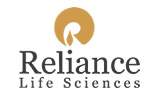
http://www.relbio.com/
INDIA'S RELIANCE GROUP HAS STATE OF THE ART WORLD CLASS INFRASTRUCTURE FOR AGRICULTURE RESEARCH |
Reliance Group is the largest private sector enterprise in India, participating in businesses in the energy and materials value chain, with group revenues of USD 24 billion. The flagship company, Reliance Industries Limited, is a Fortune Global 500 company. Reliance Life Sciences is developing business opportunities in the domains of medical biotechnology, plant biotechnology, industrial biotechnology, clinical research services and contract manufacturing.
From a domain perspective, these opportunities cover biopharmaceuticals, molecular diagnostics and genetics, cell-based therapies, plant tissue culture, plant metabolic engineering, biofuels, biopolymers, biochemicals, clinical research services and contract manufacturing.
The Reliance Life Sciences initiative is one of the most diverse and integrated biotechnology initiatives being developed anywhere in the world. |
|

AGRONOMY
Reliance Life Sciences has three R&D farms, primarily for research work on biodiesel crops and for plantation of tissue cultured crops under different agro-climatic conditions. These are located at Kakinada in Andhra Pradesh, Nagothane in Maharashtra and Gandhar in Gujarat.
|

ANIMAL HOUSE
Reliance Life Sciences has established a state-of-the-art, barrier-maintained Animal Facility for breeding and experimentation on small animals to meet internal, as well as client needs.
The facility breeds and maintains animals in individual ventilated cages (IVC) and conforms to the guidelines outlined by the Committee for the Purpose of Control and Supervision of Experiments on Animals (CPCSEA).
It is the only facility in India designed to carry out experiments on immuno-compromised animals in a class 10,000 facility.
|
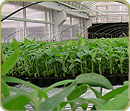
GREEN HOUSE
Reliance Life Sciences has greenhouses (6,000 square feet) located at DALC, which are fitted with fan and pad systems and foggers to control and maintain temperature and humidity. A Shade House (3,000 square feet) is used for secondary hardening of in-vitro plants. There is a separate green house for transgenic plants |
|
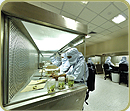
|
PLANT TISSUE CULTURE
Reliance Life Sciences operates a state-of-art plant tissue culture facility at the Dhirubhai Ambani Life Sciences Centre, Navi Mumbai. It has a total production capacity of 20 million plants per annum, with a total production area of 30,000 square feet. The facility holds five growth rooms with temperature and humidity control and three separate inoculation rooms to avoid cross contamination. |
RURAL HEALTH
|
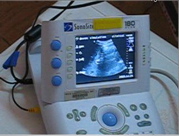
Key features of WebHealthCentre.com include:
- Online, real-time medical consultation with remote healthcare professionals.
- PC or mobile-phone access to regional directories for hospitals, specialists, blood banks, medical appliance suppliers, and welfare agencies.
- An online appointment scheduler that enables patients to make appointments with participating physicians.
- An online lab report tool that helps diagnostic centers automate the process of uploading lab reports to the Web.
- Access to test results through mobile devices.
- Online access to electronic health records.
- Medical image upload services.
- Online sonogram viewing.
- A medical student resource center.
- Healthcare job listings.
- Online shopping for healthcare supplies.
|

Telemedicine Portal Extends Quality Healthcare to India’s Rural Poor
The number of patients is increasing exponentially each year, putting enormous pressure on healthcare delivery systems worldwide. Hospitals and specialists are concentrated in cities and are inaccessible to the rural poor. Tata Consultancy Services (TCS)—a Microsoft Certified Partner and India's largest information technology (IT) enterprise consulting firm—collaborated with several Indian physicians to create WebHealthCentre.com, a comprehensive healthcare portal like no other. In addition to offering abundant health-related reference materials, WebHealthCentre.com offers online medical consultation, online appointment scheduling, and online lab results for physicians. By using the Microsoft .NET Framework, Microsoft Windows 2000 Advanced Server, Web services, and Microsoft SQL Server 2000, TCS quickly created a flexible and scalable set of online healthcare services that are extensible to a range of platforms.
Benefits
WebHealthCentre.com is providing improved access to healthcare information and services for citizens around the world, particularly in India's low-income rural areas. The Web portal makes better use of physicians' time by giving them instant access to patient data through PCs and mobile devices. The use of .NET, Visual Studio, and Windows Server System products helped TCS get the Web site up and running in a matter of months. WebHealthCentre.com has a foundation that is scalable and extensible to accommodate new technologies and features. |
RURAL HOUSING
ENERGY CONSERVATION
WATER
LANDSCAPING
RURAL TOWNSHIP BUILDING DESIGN AND CONSTRUCTION |